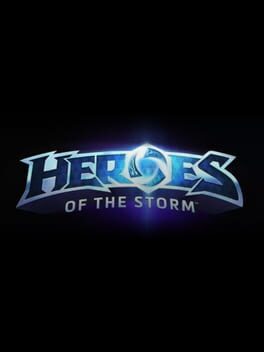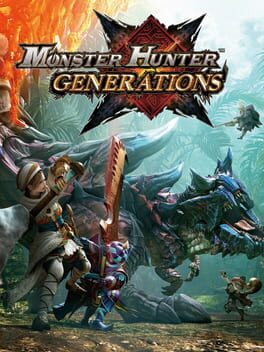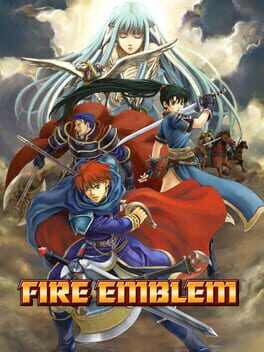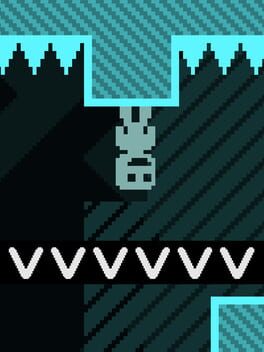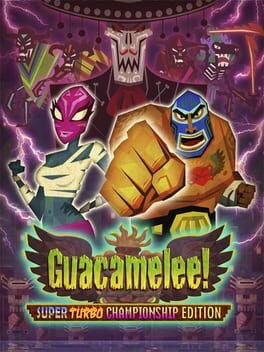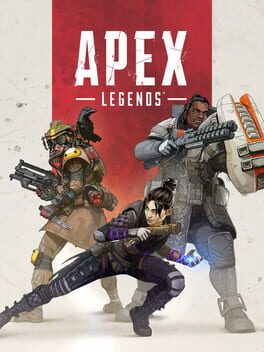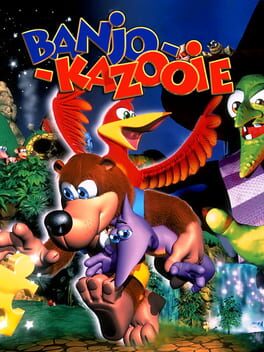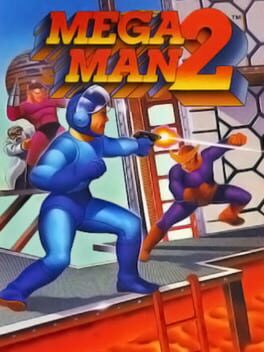synthezoid
2020
I've been simping for Supergiant for the better part of ten years--ever since Bastion. Here's to the recognition they deserve. While Bastion and Transistor are fun (I haven't gotten to play Pyre yet), it does feel like their short playtimes are a necessity compensate for the limited depth of their gameplay. Hades can keep you playing much longer, and it absolutely earns that. Where their previous games excelled in vibes and storytelling, Hades does too--it's just even more replayable and addicting than most games out there manage.
I'm normally a bit of a snob about roguelites. Too much metaprogression feels bad to me; I like the notion that with enough skill, I could beat the game on my first run. I never will, but the sensation of fairness is what matters. Most of my favorite roguelites, like FTL, Monster Train, Slay the Spire, and Into the Breach, only offer unlockable new options rather than powers; the game never gets substantially easier until you get substantially better (or luckier). When games like Rogue Legacy let you become more powerful with each successive run, it can start to feel like the game is designed around grinding to overcome challenges rather than developing skill and familiarity. Hades does exactly this, but it sets itself apart by considering how this altered gameplay loop should necessarily impact every other part of the game. The writing, themes, and the game's entire artistic vision hinge on this progression, and it makes the whole gameplay loop feel justified. A halfway-finished run can still advance the narrative in one way or another, while a finished run doesn't have to close the door on your motivation to keep playing thanks to all the additional content and options at your disposal. Hades is so brimming with polish, it makes it look effortless to make a game this good. It's only after you go back to play some of the games it resembles that its real level of quality is drawn into sharp focus.
I'm normally a bit of a snob about roguelites. Too much metaprogression feels bad to me; I like the notion that with enough skill, I could beat the game on my first run. I never will, but the sensation of fairness is what matters. Most of my favorite roguelites, like FTL, Monster Train, Slay the Spire, and Into the Breach, only offer unlockable new options rather than powers; the game never gets substantially easier until you get substantially better (or luckier). When games like Rogue Legacy let you become more powerful with each successive run, it can start to feel like the game is designed around grinding to overcome challenges rather than developing skill and familiarity. Hades does exactly this, but it sets itself apart by considering how this altered gameplay loop should necessarily impact every other part of the game. The writing, themes, and the game's entire artistic vision hinge on this progression, and it makes the whole gameplay loop feel justified. A halfway-finished run can still advance the narrative in one way or another, while a finished run doesn't have to close the door on your motivation to keep playing thanks to all the additional content and options at your disposal. Hades is so brimming with polish, it makes it look effortless to make a game this good. It's only after you go back to play some of the games it resembles that its real level of quality is drawn into sharp focus.
2015
Throws away some of the most satisfying bits of other MOBAs (none of which I particularly love, admittedly) like last hitting, creep denial, and their greater depth, for the sake of also throwing out some of their unwelcoming complexity. In the process, it makes something more casual and accessible, but also a hell of a lot more bland. The use of different maps was a wonderful idea and drawing from Blizzard's iconic roster is great, but it's just not that fun, whereas even League can be a solid time with friends in the right moment.
This one is supposed to have less endgame content than 4U, but who actually plays these things long enough to get there? I had a fine time hunting dinosaurs until I got tired. Isn't that all you need from a Monster Hunter game? 3U was my first foray into the series before the slow pace, general clunk, and gathering quests turned me off of it. This one had slightly better quality of life features, online play, and a couple of fun new weapons to try. This adds up to make it a better experience overall, even if I don't ever expect to become a Monster Hunter diehard.
The West’s introduction to Nintendo’s storied tactical JRPG franchise, Fire Emblem 7 is perhaps the best-presented Fire Emblem game, containing some of the best animation and sprite work on the GBA. It has some glaring issues, though, like a story full of painfully generic fantasy JRPG tripe that can’t help but fizzle out every time it threatens to go somewhere interesting, battles that are best played on an emulator with a fast-forward button, cutscenes that inexplicably autoplay dialogue at a dismally slow speed, and a late game full of inconsistent difficulty spikes if you're not aware of how best to min-max your party, how to get the good equipment, or which characters turn out to be useless or outclassed later on. I appreciate a challenge, but this game frequently isn’t, until it is.
I love the series’ trademark permadeath system, but I find it better in theory than I do in practice. It adds weight to your decisions, ups the challenge, and forces you to make tough calls about who you’re REALLY attached to. It also results in the game handing you a lot of useless duplicate class characters which frequently either replace ones you have or add little of value. Besides that, there are simply too many for all but a few to get any real character development. The way they’re referred to as “units” rather than “characters” is telling. Yet several plot-centric characters are capital-R Required, so upon “death,” either they become incapacitated so as not to affect the story, or you get an unceremonious game over. Now go replay the past twenty minutes because another swordsman with no personality died. See, this one has red hair, so he’s important.
I'd rather Fire Emblem take a page from western RPGs and give us a story that adapts to how we play, offering multiple endings and branching paths as consolation for our mistakes--and as a reward for our successes. Instead, FE7 opts for half measures. Choices have substantial gameplay weight, but are let down by a narrative that doesn't care about them. I understand this kind of design is a big burden on development, but I’d gladly take 10-20 chapters in a world that reacts to my choices, has characters worth caring about, and allows me to fail forward over this game’s set of 30+ linear, occasionally bland, frustrating chapters.
Of course, that’s asking a lot of a Game Boy Advance game. The gameplay, when everything falls into place and the challenge feels tuned precisely to your skills, is still sublimely satisfying. A character surviving almost-certain death with a lucky dodge or crit is as exhilarating as it is frustrating to lose an essential one to the same things. Out-maneuvering the opponent feels supremely rewarding, which makes it all the more annoying when an unannounced reinforcement punishes you for simply playing how the game had encouraged you. (Some Fire Emblem games have reinforcements that can move and attack on their first turn--at least I don’t recall this happening in this game.) Fire Emblem at its best--when it lives up to its promise--is incredibly fun. I just wish this one did so more often.
I love the series’ trademark permadeath system, but I find it better in theory than I do in practice. It adds weight to your decisions, ups the challenge, and forces you to make tough calls about who you’re REALLY attached to. It also results in the game handing you a lot of useless duplicate class characters which frequently either replace ones you have or add little of value. Besides that, there are simply too many for all but a few to get any real character development. The way they’re referred to as “units” rather than “characters” is telling. Yet several plot-centric characters are capital-R Required, so upon “death,” either they become incapacitated so as not to affect the story, or you get an unceremonious game over. Now go replay the past twenty minutes because another swordsman with no personality died. See, this one has red hair, so he’s important.
I'd rather Fire Emblem take a page from western RPGs and give us a story that adapts to how we play, offering multiple endings and branching paths as consolation for our mistakes--and as a reward for our successes. Instead, FE7 opts for half measures. Choices have substantial gameplay weight, but are let down by a narrative that doesn't care about them. I understand this kind of design is a big burden on development, but I’d gladly take 10-20 chapters in a world that reacts to my choices, has characters worth caring about, and allows me to fail forward over this game’s set of 30+ linear, occasionally bland, frustrating chapters.
Of course, that’s asking a lot of a Game Boy Advance game. The gameplay, when everything falls into place and the challenge feels tuned precisely to your skills, is still sublimely satisfying. A character surviving almost-certain death with a lucky dodge or crit is as exhilarating as it is frustrating to lose an essential one to the same things. Out-maneuvering the opponent feels supremely rewarding, which makes it all the more annoying when an unannounced reinforcement punishes you for simply playing how the game had encouraged you. (Some Fire Emblem games have reinforcements that can move and attack on their first turn--at least I don’t recall this happening in this game.) Fire Emblem at its best--when it lives up to its promise--is incredibly fun. I just wish this one did so more often.
2010
2019
The gunplay is some of the best I've seen in any battle royale, but I just don't have any motivation to continue playing once my friends drop it. At least PUBG, as much of a mess as that game is, was addicting for a while, solo or otherwise. Ultimately, it's one of the most mechanically solid battle royales, but with one of the most limited sets of game modes, and it still ultimately feels like a diversion from Titanfall 2's already incredible--and more mechanically rich--multiplayer.
1998
In my time playing Banjo-Kazooie, I found that the moment-to-moment exploration and platforming is excellent to this day. Realizing I might have to start replaying levels I'd already gotten most of the junk in to progress later on is not, and was in fact so deflating that I put the game down until I am ready to deal with that. (Apparently the Xbox ports help make this less tedious by remembering which notes you've already gotten, so you don't have to re-collect all of them every time you revisit a level to get more. Fingers crossed it comes to PC someday with that quality of life upgrade intact.)
1989

